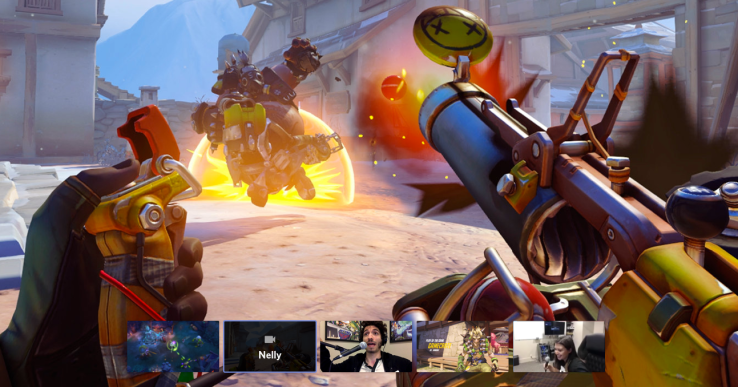
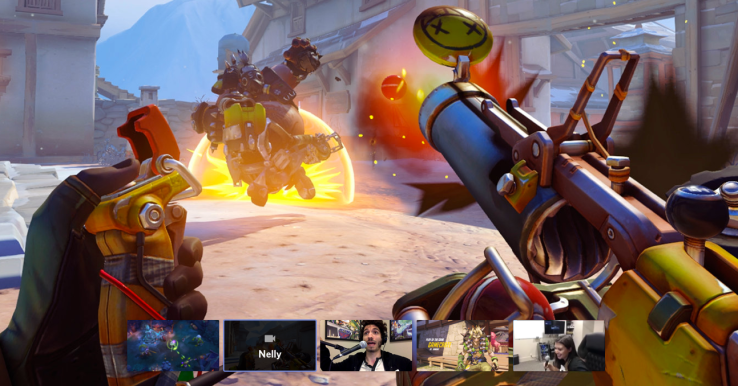
Discord wants to destroy its biggest, best-funded competitor in the battle to be the communications layer for gaming. It wants to be the home for gamer clans strategizing and trash-talking with each other. After out-gunning its gaming-specific competitors like TeamSpeak, Mumble and Ventrilo with a secret $50 million fundraise earlier this year, Discord is setting its sights on Skype.
Today Discord expands beyond text and voice with the launch of video chat and screensharing. Now friends can watch each other play their favorite games while talking face-to-face. These features could further addict Discord’s 45 million users, 9 million of whom use its web, desktop and mobile apps each day.
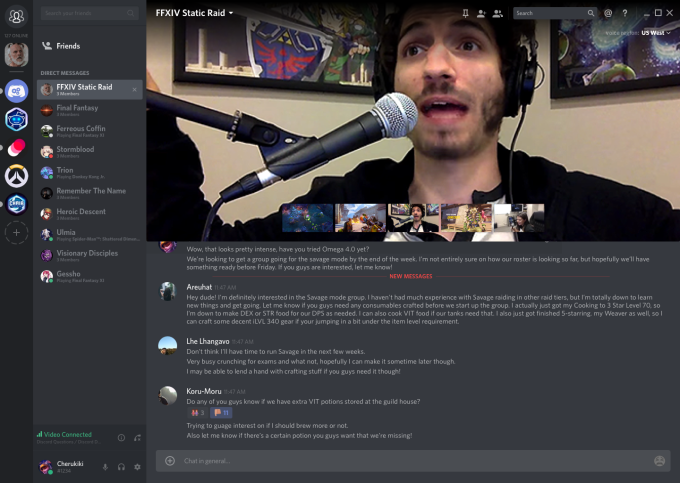
“This is the most requested feature on Discord probably a year running,” says CMO Eros Resmini. “A lot of infrastructure had to be built up for this launch,” he warns, though, since the video features run at a remarkably smooth and crisp 720p at 30 frames per second. Skype runs at half that FPS. My briefing with the company was held over its new video chat, and it looked much better than what’s standard.
That’s why only 5 percent of users will get video today, and it will only work with groups of up to 10 people. Embodying Discord’s playful style, the company explains that “It’s possible that we’ll need to completely turn off video calls during this test. If you find the feature is missing all of a sudden, we suggest you lay on the floor and stare at the ceiling until it’s fixed.”
If the video launch goes smoothly, Discord could snatch gamers from its competitors that either lack video entirely, or do screensharing poorly like Skype, as they weren’t built for conveying rapid-fire action with sharp graphics. One big thing that’s lacking is sound from screenshares, which Discord will need to figure out.
Video chat could be a stepping stone for Discord to start competing with massive one-to-many broadcasting channels like YouTube and Twitch.
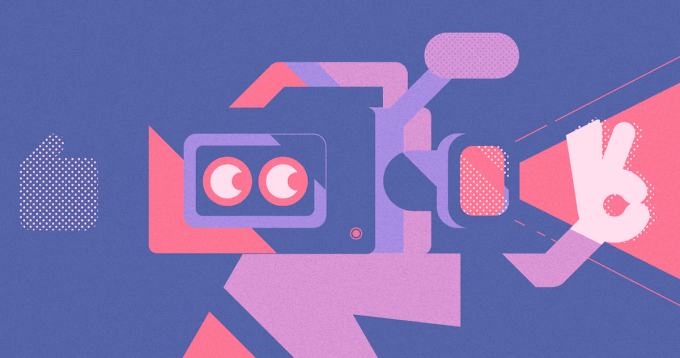
From gamer to game developer to Discord
Discord was originally a game developer itself, making the critically acclaimed but publicly ignored mobile battle arena Fates Forever. “We couldn’t figure out how to get over the hump on the monetization side,” Resmini says. So in late 2014, it started tinkering with other ideas.
CTO Stan Vishnevskiy had been dreaming of a tool like Discord. “I played MMORPG [Massively multiplayer online role-playing games] 15 hours per day,” he told me, and was dissatisfied with TeamSpeak and Mumble. Those required IP addresses that could be attacked by trolls, rented servers and clumsy apps. “Can we make a 10X project? Low-friction usage, no renting servers, beautiful design we took from mobile.”
Discord launched in May 2016 and has been a rocket ship ever since. It’s now raised a total of $79 million, including the $50 million round led by Index Ventures in January 2017. The 70-employee startup now handles 200 million messages per day and up to 4 million concurrent users as groups chat about World of Warcraft, OverWatch, League of Legends and Clash Royale.
The startup earns money from $5/month subscriptions to its Nitro tier, which gives users cosmetic upgrades and a few bells and whistles. “Discord has made the promise to our user base of keeping the core Discord experience free,” says Resmini. But the company is considering launching in-app purchases to enhance the new video features and earn some extra cash.
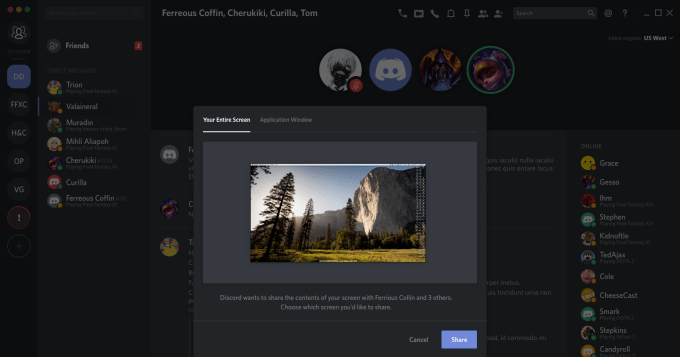
Don’t equip the trolls
The company insists that the majority of its users are gamers chatting with small groups of friends, where someone calling someone else a colorful, profanity-laced name is more a joke than a harassment issue. But there are some larger public servers for entire sub-Reddits where people discuss topics beyond games, and Discord has unfortunately found itself used by hate groups to coordinate trolling and harassment.
“We focus on giving people tools and controls so they never get in a situation that they’re with a stranger that’s doing something you don’t think is OK,” says Resmini. “You can block folks, you can leave places, you can remain in a private space.” The team also relies on users to report abuse to its team trained to quickly banish harassment, doxing and other problems.
Some startups, like subscription crowdfunding platform Patreon, have taken a relatively permissive approach to dealing with hate-mongers, and decline to comment on incendiary topics like Gamergate. That’s why it was encouraging to hear Discord speak candidly about its disapproval of the alt-right and sexism in the gaming business.
“Their ideologies aren’t welcome,” Resmini declares. “We don’t like people that act that way, people that harass people. We’re on the side of gaming that’s a positive community. That’s an inclusive community.”

Still, Discord won’t proactively jump in unless there are abuse reports. “We don’t read people’s private servers. We believe in privacy at Discord. The censorship thing is something we’ve stayed away from. We think it’s a very slippery slope,” Resmini admits. But once hatred surfaces, it’s comfortable dealing out lifetime bans and deletions of servers.
If Discord ever wants to become a mainstream communication tool for gaming culture that’s grown increasingly popular worldwide, it has to keep things clean and friendly, even if that means friends laughing while they swear at each other. “Some of the happiest times of my life have come from gaming,” Vishnevskiy concludes. “And things that make me happy, I want to bring to others.”

